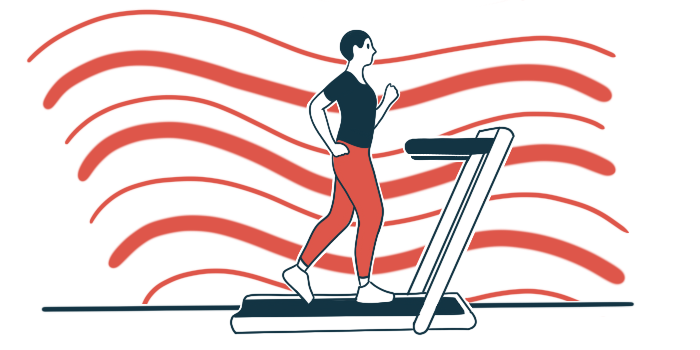New Cionic partnership will expand veterans’ access to Neural Sleeve
Company’s approved leg-worn device improves walking ability in MS patients
Written by |

Cionic has partnered with Lovell Government Services, a veteran-owned business, to expand veterans’ access to its Neural Sleeve, a leg-worn device to improve walking in people with multiple sclerosis (MS) and other conditions that affect mobility.
The lightweight garment is approved in the U.S. for use by patients with foot drop and/or leg muscle weakness — common symptoms among people with neurological conditions such as MS, stroke, spinal cord injury, and traumatic brain injury.
With the new partnership, Lovell — as Cionic’s service-disabled veteran-owned small business vendor — will facilitate eligible veterans’ access to the Neural Sleeve within federal healthcare systems, including the Veterans Health Administration, the Military Health System, and the Indian Health Service.
“We are thrilled to join forces with Lovell, expanding our ability to serve veterans and their dedicated providers — many of whom have championed our technology from the beginning,” Jeremiah Robison, Cionic’s founder and CEO, said in a company press release.
Chris Lovell, the company’s CEO, said Lovell is “excited to partner with a visionary company that is revolutionizing mobility for veterans” with MS and other conditions.
“Their Neural Sleeve technology not only empowers individuals with disabilities to move more freely but also plays a crucial role in rebuilding strength and independence,” Lovell said.
Cionic teaming up with veteran-owned business on access
Voluntary movement, such as walking, depends on the fast and effective communication between nerve cells and muscles. However, such communication is commonly impaired in people with MS and other neurological conditions, leading to muscle weakness and walking and balance difficulties.
Foot drop, a common MS symptom, refers to difficulties lifting the front part of the foot. This results in the dragging of the front of the foot on the ground while walking. It makes falls more likely when a person walks, particularly on uneven surfaces or stairs.
The Neural Sleeve, made of soft, flexible fabric and available in several colors, is fitted to a person’s leg and can be used under clothing or on its own. Inside the fabric are multiple sensors that allow the device to monitor and predict movement in one-tenth of a second, and improve the wearer’s movement through personalized algorithms.
It can read the signal sent from the brain to the leg muscles, and predict the movement before the foot leaves the ground, delivering electrical stimulation to the muscles needed for movement, and providing real-time adjustments.
The device is provided with an eight-hour battery life to assist patients throughout the day. It’s controlled by the Cionic App, which is continuously updated with new programs and activities. The app also can share data on patients’ progress with their healthcare teams.
Before the Neural Sleeve, I worried about tripping with every step I took, and today I am walking with more confidence and reduced fear of falling. … It helps me stay more active with my family, and I’ve noticed improvements in strength and posture over time.
Studies have suggested that the wearable device can improve mobility for people with MS, countering foot drop and easing pain, anxiety, or depression.
“After using the Neural Sleeve for several months, I can now walk up to a mile without a cane,” said Steve Sprouffske, a U.S. Air Force retiree with MS.
“Before the Neural Sleeve, I worried about tripping with every step I took, and today I am walking with more confidence and reduced fear of falling,” Sprouffske said. “It helps me stay more active with my family, and I’ve noticed improvements in strength and posture over time.”
Veterans wanting to learn more about how to access the Neural Sleeve through the U.S. Department of Veterans Affairs can visit cionic.com/va.
